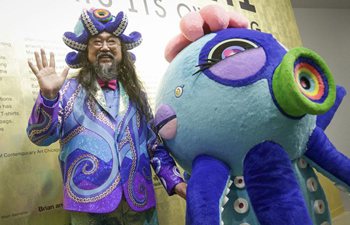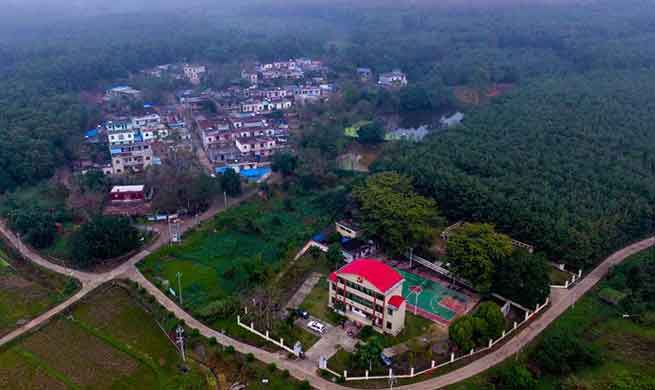SAN FRANCISCO, Feb. 2 (Xinhua) -- Neuroscientists recently identified "anxiety cells" in the brains of mice, a finding that could help with the treatment of humans suffering anxiety disorders in the future.
The research, published this week in the journal of Neuron, was conducted by a group of scientists at Columbia University Irving Medical Center (CUIMC) and the University of California, San Francisco (UCSF) in the United States.
The study aimed to answer "where the emotional information that goes into the feeling of anxiety is encoded within the brain," said Mazen Kheirbek, co-author of the study and an assistant professor at UCSF, in a recent press release.
The cells were discovered in a structure called the hippocampus, a component of the brain in both mice and humans that regulates mood and forms memories. The cells probably exist in humans as well, said Rene Hen, a professor at CUIMC.
"We call these anxiety cells because they only fire when the animals are in places that are innately frightening to them," Hen said in the press release on CUIMC's website.
The firing of these cells then sends messages to other parts of the brain that triggers anxious behaviors, such as avoiding dangerous areas or fleeing to safe places, the study said.
Researchers used a technique called optogenetics to control the level of activity in the cells to monitor mice' behaviors, and found when the anxiety cells were stimulated, the mice became more anxious.
"This is exciting because it represents a direct, rapid pathway in the brain that lets animals respond to anxiety-provoking places without needing to go through the higher-order brain regions," Kheirbek said.
The finding sheds a new light on researches about anxiety disorders in humans, and has the potential to lead to new treatments that reduce anxiety, UCSF said in a news release.

















